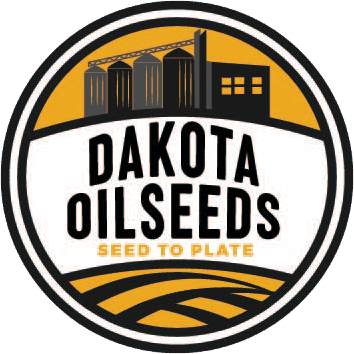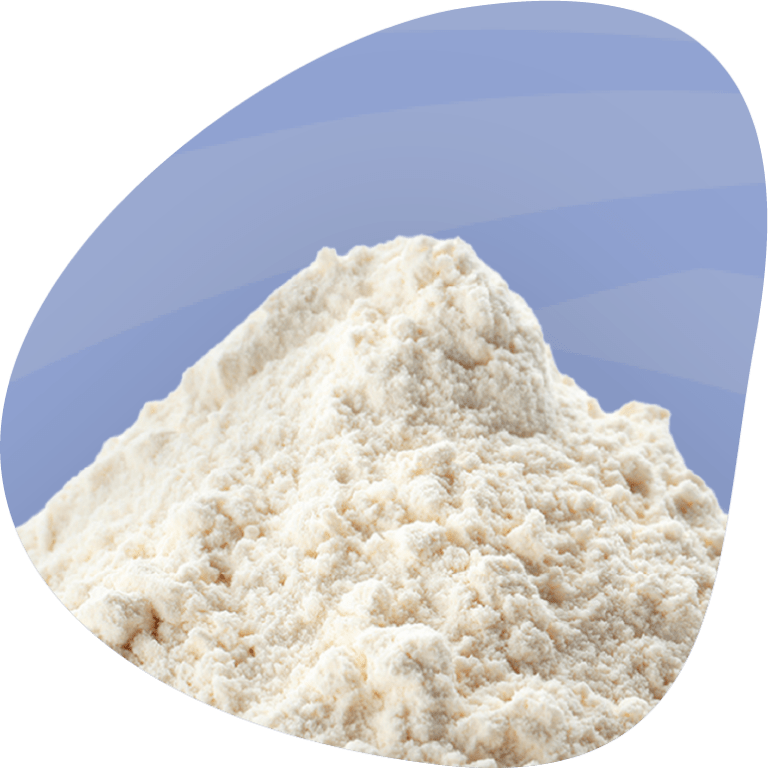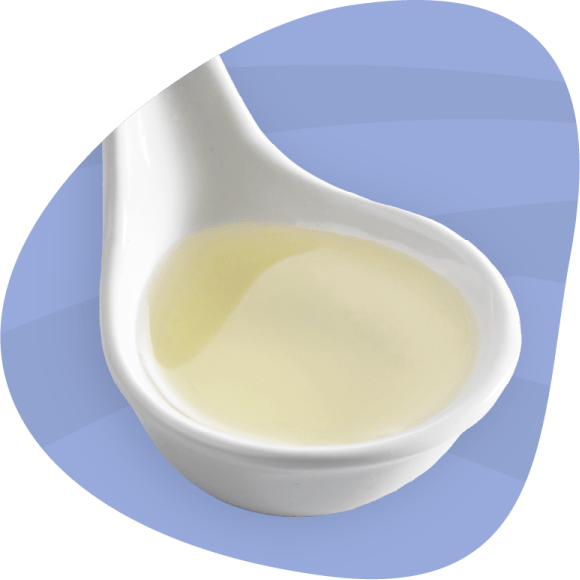
why flax — A climate-smart crop & functional powerhouse
Flax is a bast fiber and oilseed crop that has a notable footprint across North Dakota, South Dakota, Montana, and Minnesota. A single flax crop can yield nutritious grain, known as flaxseed or linseed, and a robust climate-smart fiber with a wide range of non-woven and woven uses, from plastics to apparel. We source our flaxseed from U.S. farms who share our passion for regenerative practices and functional nutrition
Climate-smart
Reduced Carbon Emissions
Flax production typically requires fewer synthetic fertilizers and pesticides compared to other crops, leading to reduced greenhouse gas emissions during production.
Sustainable Farming Practices
Flax can thrive in diverse climates and is often grown using sustainable farming practices, such as crop rotation and reduced tillage, which enhance soil health and reduce environmental impact.
Carbon Sequestration
Flax captures and stores carbon dioxide (CO2) from the atmosphere in its biomass, contributing to carbon sequestration.
Water Efficiency
Flax is a relatively low-water crop, making it less resource-intensive than some other crops that require substantial irrigation.
Biodiversity Support
Flax cultivation can support biodiversity by providing habitat and food sources for various beneficial insects and wildlife.
Versatile Natural Fiber
Flax fibers can be used in various applications, including apparel, composites, and building materials.
Soil Health & Erosion Control
Flax has a fibrous root system that helps improve soil structure, enhance water infiltration, and prevent soil erosion.
Biodegradability
Compared to synthetics, flax fibers decompose quickly, minimizing the long-lasting, harmful waste left behind by materials like plastics and petrochemical-based textiles.
Essential nutrition
More about flax
Essential fatty acids cannot be synthesized by the body, so they need to be obtained through dietary supplementation or food sources. The modern diet has an imbalanced intake of Omega-6 and Omega-3 fatty acids, with more Omega-6 and less Omega-3 available. A recommended ratio is 2:1-4:1 of Omega-6 to Omega-3 for optimal health. These fats compete for cell membrane space, and higher Omega-6 levels limit Omega-3 storage.
Dietary fiber is essential for gastrointestinal and cardiovascular health. North Americans typically consume only half the recommended amount, possibly leading to increased health issues.
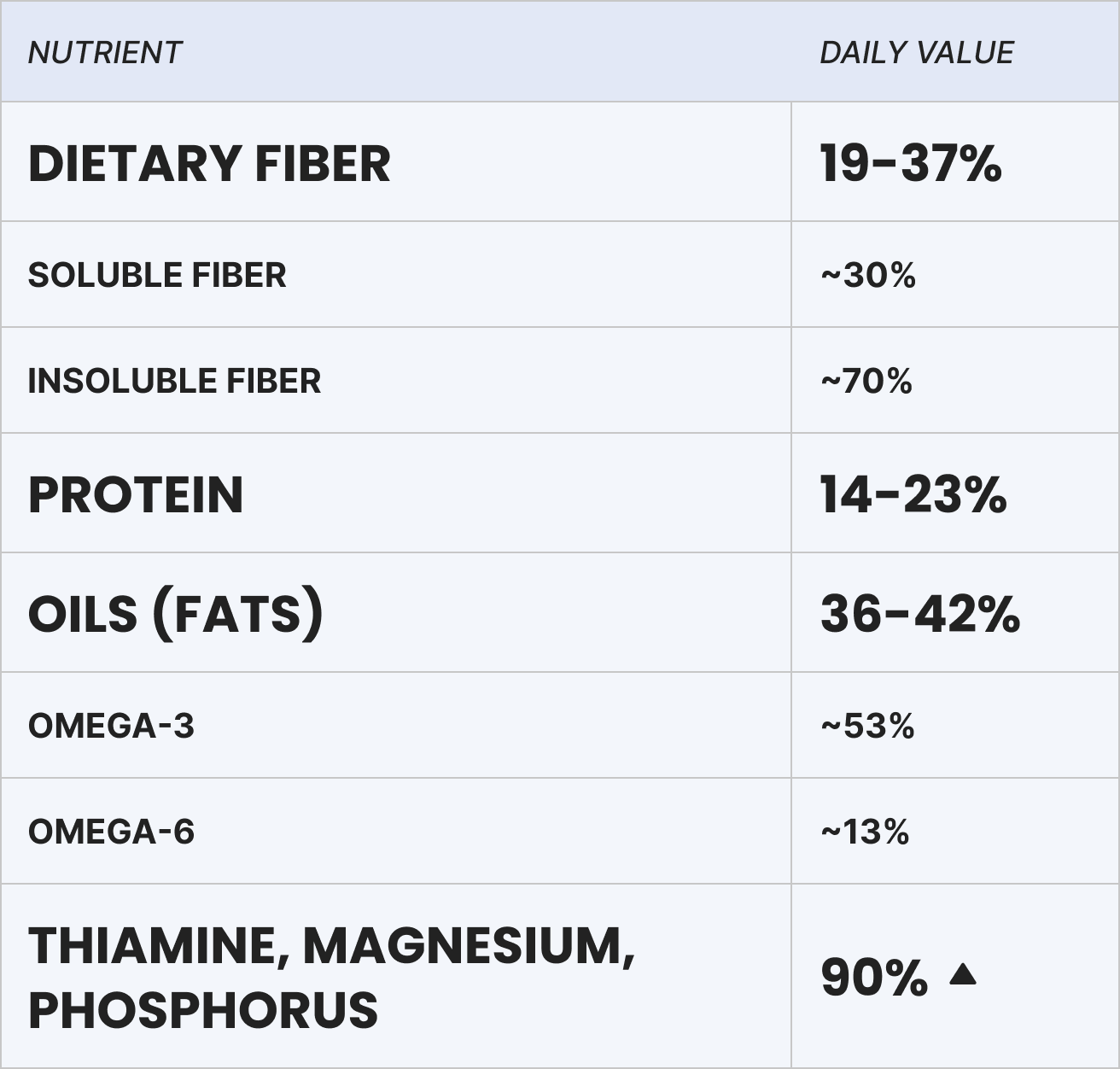
Diet Friendly
Dietary restriction friendly
Flaxseed is non-GMO and free of the top 9 allergens. As a gluten-free flour substitute, flaxseed caters to individuals with gluten sensitivities or those following a gluten-free diet.
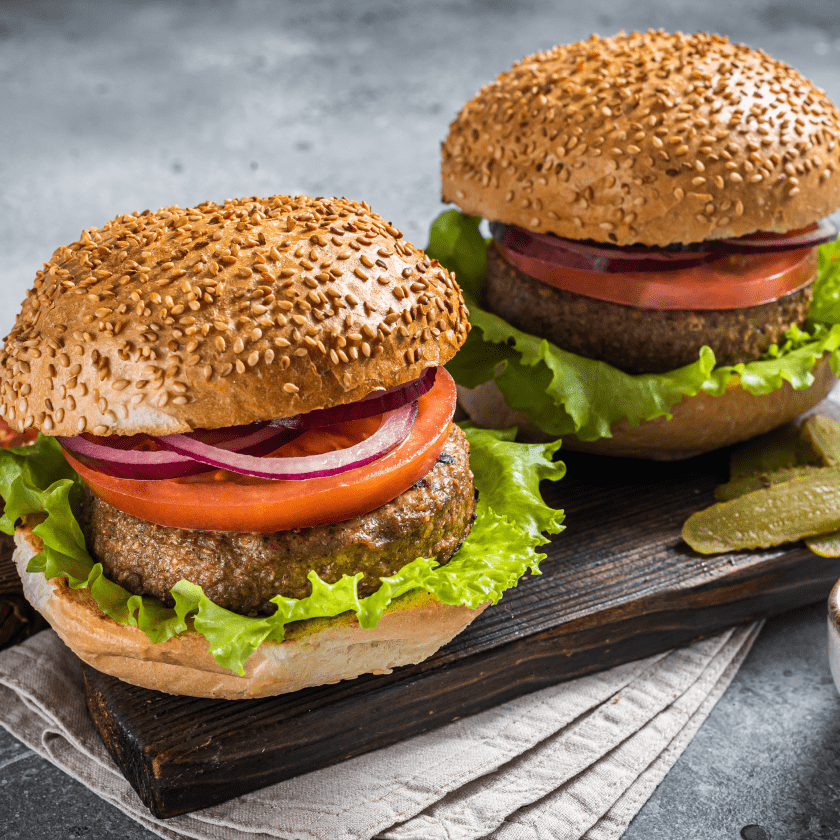
why flax
Health supporting properties




Inquiry Form
Let’s work together
Submit an inquiry form below — tell us about your product and how we can meet your function, price, nutrition, color, and flavor needs.




